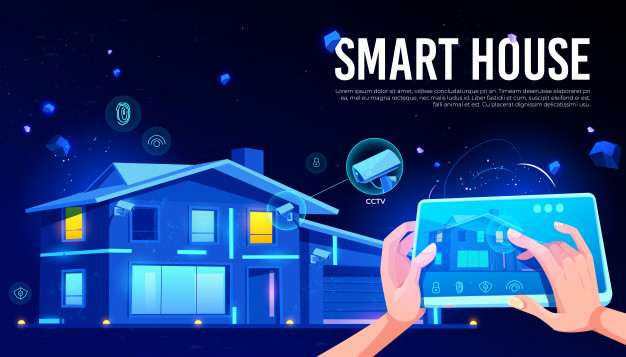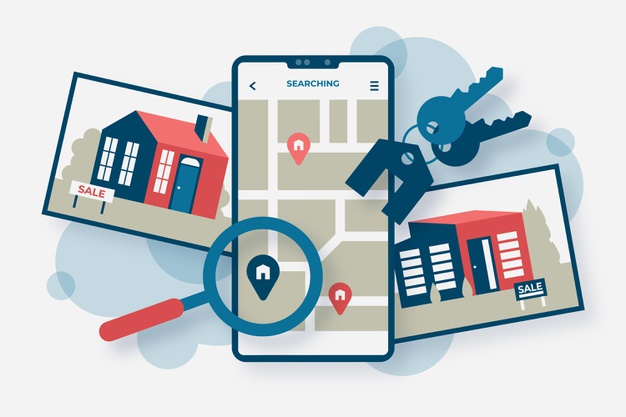
Prop tech has been transforming the residential real estate injury for several years now, helping businesses collect rent, communicate with tenants, and run background checks. Meanwhile, other advancements, like the popular websites Zillow and Trulia, enabled easier property promotion in a crowded market. One of the more innovative newcomers in the field is ThePropertyBuyingCompany.co.uk offers to sell anyone’s property within 7 days or less.
Taken together, it became clear that real estate professionals had steadily gained access to a powerful array of prop-tech tools – but in many ways, these advancements were just scratching the surface. After all, marketing and managing rental properties involves a huge variety of tasks, and it’s only recently that additional tech tools have started to address these needs.
Table of Contents
Making The Connection

Finding tenants – not just any tenants, but the right ones – is one of the more challenging jobs that property managers have to deal with, and it only gets harder when there are many vacancies. Meanwhile, potential tenants may only know about a small number of potential properties, especially if they’re searching for housing remotely.
In hopes of connecting these disparate groups, the UK-based prop-tech startup OpenRent launched a platform to connect property managers with pre-screened tenants, while also supporting secure communications between current tenant-landlord pairs.
View It In VR

Another major innovation influencing the property management sector is VR technology’s growth for staging and viewing properties. As any real estate professional can attest, staging plays a critical role in marketing a property. By using virtual staging apps and related property showing technology, however, property owners and managers can more easily show spaces to interested parties, presenting them in their best light, even if they don’t necessarily have the ideal staging materials on hand.
VR technology also allows potential tenants to get a fuller experience of potential homes or apartments during their tours, even if they can’t visit those properties in person. This can help build interest and trust by deepening their experience of and investment in properties. It makes them more likely to rent, compared to those properties that they can only view in pictures.
Enhanced Tenant Engagement

As noted above, some types of prop-tech, such as the platform OpenRent, facilitate communication between landlords and tenants such as by offering secure SMS tools, but tenant engagement goes much deeper than that. In fact, many tools support multi-channel communications and have personalization settings that allow managers to identify tenants’ preferred mediums. This is ideal given the significant gaps in preferences between Millennial tenants and Baby Boomers.
Besides text, phone calls, and emails, companies including the Austin-area property management company Green Residential are also supplementing communication with tenants by equipping their websites with a fast-responding chatbot. Chatbots are increasingly savvy and serve as the perfect bridge for companies trying to connect with visitors, but they can also provide basic information for existing tenants without tying up staff.
The Smart Home Shift

It’s impossible to overstate the importance of smart home technology to the rental industry, even as many elements are not particularly new. For example, sustainably-minded property owners have been trying to encourage eco-friendly living for several years by installing smart thermostats, and in some upscale markets, smart home tech has started to become expected. As these devices become more affordable, though, their embrace continues to grow.
One of the most popular smart home devices that property investors and managers have added to their arsenal of tools is smart access control. By allowing management to “re-key” newly vacated residences, create temporary permissions for outside maintenance, and much more, smart access control can make building management more efficient while also making tenants feel more secure. Smart access control is also a boon to tenants who previously had to pay big premiums if they lost their keys – everyone wins.
Other popular smart home devices you’re more likely to find at rental properties today include motion-detection lighting and security cameras like Ring doorbells. There’s nothing tenants hate more than stressing about stolen packages, and few more inconvenient solutions than having packages delivered to the main office. The more high-end the property, though, the more smart home tech you’re likely to find, including luxury amenities like Bluetooth showerheads and coffee pots.
Less Effort, More Data

As part of today’s standard management procedures, property management groups generate a lot of information – but what do they do with it? Today’s emphasis on business intelligence could easily overwhelm small management groups, but one of the advantages of the systems that generate this information is that they also help businesses make sense of it all. This information helps property management companies identify potential tenants, evaluate applicants with greater objectivity, target their marketing more effectively, and craft the perfect incentives for retaining existing tenants. Overall, it can provide a substantial competitive edge.
Looking Ahead

The past year has been difficult on property management companies, as well as on tenants, and the real estate industry as a whole has worked hard to keep up. That’s meant chasing trends, yes, but property managers have also had to keep things in careful perspective.
For example, some ambitious management groups attempted to add value – safely – for tenants during the pandemic by fostering digital community through socials, book groups, and the like. Such offerings are unlikely to be much of a selling point in the coming year, but other shifts, like offering discounted internet packages through the management group, could have potential.
Another tech-centric area that will require some reconsideration by property management groups is the practice of offering onsite coworking spaces. Communal coworking spaces with plenty of outlets, printers, and fast internet were taking off pre-pandemic, and they could be appealing since many people will stay remote at least part-time in the coming months and even years, but communal spaces of all kinds are still hot button topics.
How to make the property desirable for tenants
If you own a rental property, you want to ensure that it is desirable for potential tenants. One way to make your property stand out is to focus on its amenities and features. For example, at Portola Court Apartments in Irvine CA, the property offers a range of amenities such as a pool, spa, fitness center, and clubhouse. These features can make the property more attractive to potential renters and help you to retain current tenants.
Another important factor to consider is the condition of the property itself. Ensure that your property is well-maintained and clean, with up-to-date appliances and fixtures. Additionally, make sure that the property is easy to access and convenient for tenants.
As they regain their footing, property management groups will have to listen carefully to their tenant base and stay connected to other area rental networks. Where they commit technology funds will vary based on community demand and competitive pressures, but it’s important to keep evolving with the times.







